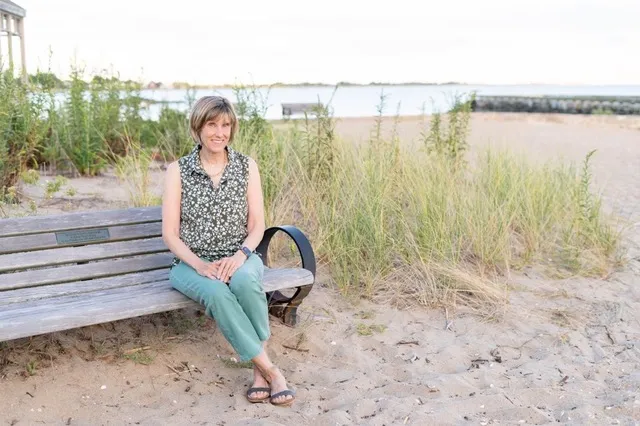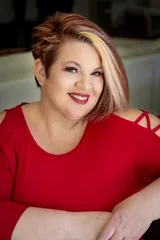Write Now with Kelly Scarborough
Today's Write Now interview features Kelly Scarborough, author of BUTTERFLY GAMES.

Who are you?
I’m a lifelong reader and history lover who took the scenic route to becoming a novelist. Before I started writing about Swedish royalty, I spent two decades in a courtroom—another world full of drama, ego, and emotion. Strangely, law and historical fiction aren’t so different. Both demand a knack for capturing the essence of human relationships, a love of language, and a flair for storytelling. Eventually, I realized I wanted to tell stories with more heart and fewer footnotes, so I traded legal briefs for royal intrigues and began writing Butterfly Games. I’m originally a Jersey Girl and lived in Arizona for thirty years. Today I split my time between the Connecticut Shoreline and South Carolina’s Lowcountry.
What do you write?
I think every writer must love what they do—otherwise, we’d never make it through the long nights, endless rewrites, or that terrifying doubt that shows up somewhere around draft four. I’ve always been drawn to stories, languages, and history. As a kid, I devoured Tudor novels (firmly #TeamElizabeth) and daydreamed about dancing in a Regency ballroom. I even planned to perfect my French and become a translator at the UN—because clearly, I thought diplomacy and fancy gowns went hand in hand.
But I didn’t seriously consider writing fiction until years later, when I found myself awake at 3 a.m. drafting a legal brief and thinking, is this really what I want to do forever? That night, a novel I’d loved as a teenager came to mind: Désirée by Annemarie Selinko. It tells the story of Napoleon’s jilted fiancée who went on to become Queen of Sweden. Curious, I pulled the book off the shelf and wondered, whatever happened to her son, Prince Oscar? That question eventually led me to the Swedish National Archives—and straight to Jacquette Gyldenstolpe, the real woman who inspired my debut novel, Butterfly Games.
So, yes—historical fiction was probably inevitable. I don’t consciously avoid certain words or themes, but I try to be deliberate. Violence and profanity existed in Jacquette’s world, and I include them when they belong, but only when they serve the story. For me, restraint often says more than excess.
Where do you write?
My attic office is my creative space, where I do research and writing. No writer admin, no social media, no personal business. The room has a big L-shaped desk with no drawers—clutter is the enemy—and a white leather chair that actually fits me. There’s nothing worse than sitting in a seat designed for someone who’s a foot taller. Because my work relies on heavy research, I use two large screens and surround myself with reference material. Most of my sources are digital now, but I also keep a collection of antique Swedish books nearby, so the attic smells like history every time I open one. I write on a separate MacBook that has no email app and no social media logins. It’s a sacred space. My other rule: no snacks in the attic. The stairs in my 1816 Connecticut house are steep, and they’re a good way to shore up my self-discipline.
Notebook: Moleskin 8.5” x 11”
Pen: A maroon Mont Blanc enameled ballpoint, blue ink, which my mother gave me when I became a partner at my law firm in 1996. I can’t find it right now, and I’m flustered.
Tools: A CZUR book scanner, which allows me to OCR and translate my Swedish-language printed materials, then translate them using WordFast, which houses my glossary of favorite terms, preferred spellings, and the like.
When do you write?
When I’m drafting a novel, I try to be at my desk by 9 a.m. and aim for 500 to 1,000 words by noon. That’s my natural pace. My chapters tend to fall into rhythm on their own—three scenes, about 3,000 words total—and I’ll rewrite each scene a few times before I call it a first draft. I’m not one of those people who can hammer out 5,000 words in a day, but I admire those writers from afar. For me, it’s all about steady progress and building the story one layer at a time.
Why do you write?
Puzzles have always fascinated me—jigsaw puzzles, crosswords, anything that involves arranging things and filling in the gaps. Writing historical fiction is the ultimate puzzle: reconstructing a life from fragments in letters and half-smiles in portraits. Bringing those lifeless objects to the reader as human beings. Every day at my desk, I’m piecing together what someone was thinking or feeling two hundred years ago. Where were they? Who were they with? What was happening in the world around them that day? The challenge of developing those long-ago moments into an engaging story keeps me inspired, though I won’t pretend a nap here and there doesn’t sneak in.
How do you overcome writer's block?
When I’m stuck, I go back to my sources. I’ll sift through my chronology and reread a letter, a diary entry, or a newspaper from the time I’m writing about. Sometimes I scroll through my travel notes or photographs from Sweden, and that’s usually enough to pull me back into the world of the novel. I also love talking through the story with my fellow writers. I have the best, most supportive friends in my critique group. We are scattered throughout the U.S. and Canada but meet online every two weeks. I’m having dinner with one of these amazing friends in Montreal in a couple of weeks, and we’ll probably bore our husbands to death talking about plot structure.
Bonus: What do you enjoy doing when not writing?
When I’m not writing, I love travel, especially if it involves bookstores, research, and great music. For years, I’ve planned trips around concerts—the Rolling Stones in Stockholm, Eric Clapton in London, Sting in Las Vegas, Jack White in Austin. I like to think of it as research—the lyrics are like poetry, really. Lately, though, my not-so-secret ambition is to read more novels and drink more coffee. Maybe I’ll still travel to concerts—just with a suitcase of books and my favorite coffee cup.
My thanks to Kelly Scarborough for today's interview.



